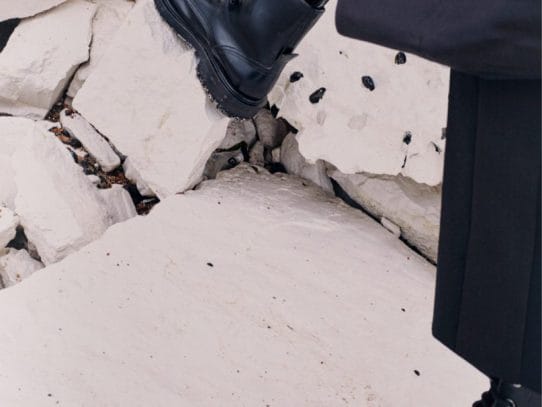ESPN's E60 Peace of Mind
As I watched the NHL Playoffs last night, on the eve of the 45th Annual Sports Emmy® Awards, I wondered if there would be a day when psychedelic and plant medicine brands would replace alcohol brands as key advertisers in sports.
Tonight, regardless of the outcome, we are moving closer to addressing the mental health crisis as alternative methods gain increased visibility with ESPN’s E60 documentary, Peace of Mind. Nominated for “Outstanding Journalism”, Reporter Kevin Van Valkenburg and KFF Health News reporter Markian Hawryluk follow a group of retired professional athletes in Jamaica who seek to find solace for various mental health conditions.
E60 Peace of Mind Now Streaming on ESPN+
Produced and directed by Blake Foeman, the documentary exposes the heart wrenching vulnerability of athletes in psychological chaos, while introducing the beauty of hope that can be experienced through the conscious and intentional use of psilocybin, a naturally occurring hallucinogen in fungi or magic mushrooms.
Magic mushrooms, also called entheogens, have been used by indigenous peoples for millennia for “healing, knowledge, creativity, and spiritual connection.” They can trigger profound transformations in consciousness by affecting the default mode network (DMN), the area of the brain responsible for rumination and reflection, fostering neuroplasticity and prompting individuals to delve into the recesses of their subconscious.
Much like hands manipulating clay, neuroplasticity allows the brain to adapt, forming new neural connections and rearranging existing ones. This continuous restructuring is the foundation for learning, memory, and personal growth. In the context of neuroplasticity, the brain is not a static entity but rather a dynamic and moldable organ capable of adapting to experiences.
“Psilocybin down regulates activity in the default mode network and at the same time, increases connectivity in the rest of the brain, so we’re able to get out of brain patterns that have been unhelpful and at times, dramatically destructive.” — Dr. Scott Aaronson, Chief Science Officer, Sheppard Pratt.
Peace of Mind begins in a peaceful setting about 60 miles north of Kingston, but quickly explodes to showcase the hand-to-hand combat of NHL enforcer Riley Cote. Cote recounts his role as a fighter and the impact on his physical and mental health, while looking to alcohol and opioids as a way to numb the pain and depression.
“I wasn’t sure if it was coming from the substance abuse or if it was coming from getting punched in the head pretty regularly. Obviously it was a combination of both.”
The documentary follows other male athletes, as well, including fellow NHL enforcer Steve Downey, retired boxer Mike Lee and former NFL and CFL player Justin Renfro as they use this medicine as a tool to go back and revisit trauma to experience those emotions in a healthy way, as well as symptoms from their traumatic brain injuries (TBIs).
Research suggests that the dissociative properties of psychedelics may have therapeutic potential, particularly in treating conditions like depression, anxiety, and PTSD. By temporarily disrupting maladaptive thought patterns, these substances may create a therapeutic window during which individuals can actively engage in reshaping their cognitive landscape with the guidance of psychedelic-assisted therapy.
The key to harnessing the potential of neuroplasticity and psychedelics lies in the integration of insights gained during altered states of consciousness into everyday life. Much like molding clay requires shaping and refining, the process of reshaping thoughts and beliefs involves ongoing self-reflection, mindfulness, and intentional efforts to sustain positive changes.
Peace of Mind, now streaming on ESPN+. The National Academy of Television Arts and Sciences (NATAS) will announce the winners at an in-person ceremony tonight, May 21, at Jazz at Lincoln Center’s Frederick P. Rose Hall.
Save Article










